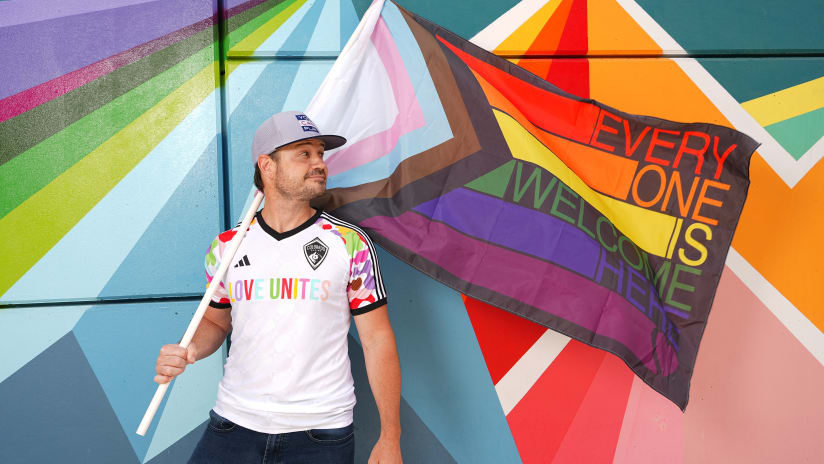In the two and a half years you've been with You Can Play, what progress have you seen in the sports community as it ties with the queer community?
It's interesting, I think sport opening back up [after COVID] allowed for us to then rethink what we're doing even before it closed down, right? And then how do we approach inclusion in sport, which was nice. And I think we can fix some of the challenges we had in the past, we also had some new opportunities, hybrid [work], the sport figuring its way out was was great for us to think and like I said, partner with our teams and our leagues to be able to see what can we do differently, or uniquely. I'd say it's been a challenge lately with recent political movements but I think that it's just going to make us better, it's going to make us work harder, and it's gonna make us hopefully get a more succinct message and find new and different ways to get that out.
What are some of those recent challenges you've faced?
I think when people came back, unfortunately, a lot of teams were short-staffed, they were skeleton staffs. And one of the first things to go is all the extras that happens around sport. But I got to give most teams and leagues credit, they kept something like a Pride Night, or at least an initiative going and some recognition. And so even if it was bare bones, it was still there. I give them so much credit for that. Now that we're getting back to normal, we're seeing even better than pre-pandemic time. So whether it be more money raised or more visibility to the community or more committed relationships, it's really been neat to see how that's come about.
When you have the inclusivity and visibility in sports teams, where have you seen that impact the fan side and ability to project that message further?
I think that it's multifaceted. It's 'Who's in the stands watching the game', right? So bring a new group and demographic of people in to watch soccer and be a soccer fan. It's fun, it's awesome, right? You've got outfits and drums and like they and the players, everything else is going on, it's a really great time. So being able to bring a new community in to soccer in that way, then also, of course, the visibility that the community gets to see your warmups, they get to see that there's a Pride night, that community gets to talk about it. And that means that the little kids who were thinking about leaving soccer early in the sport, say, 'Oh, wait, this actually might be for me, and I gotta stick around.' And that's really the value. That's where the outcomes are happening, which is more kids stay in school and more kids get the leadership and character building on supplemental support. So that's really what the whole benefit is. And then I think one of the ancillary things that's been great lately is that there's a lot more authentic connections to community. So the drop-in centers, the mental health facilities, the Pride organizations, these kind of organizations are finally, I think, benefiting both visibility and fundraising and understanding that sport can be a vehicle there. And I think it's something that maybe in the past, we weren't quite connected with sport as a community as much, and I think now we're becoming much more so.
In the next five years, what is your hope for the queer community and how we're all able to support through everyday things like sports?
We'd like to say that we're no longer here, right? The goal is that we are no longer needed and no longer here. But I think truly, probably within the next five years, I'd like to see to where we come around to acceptance and tolerance as a base model. And then we're gonna wrap up to ally ship and advocacy, everybody, right? So I think we have our allies and advocates we love them. But we're seeking base level of tolerance and acceptance from what I'd say the broader community especially within sport, our work, but society now and I think that's where, you know, simply not being attacked would be nice at this point. But I think we'll take we'll take some big wins in five years.




